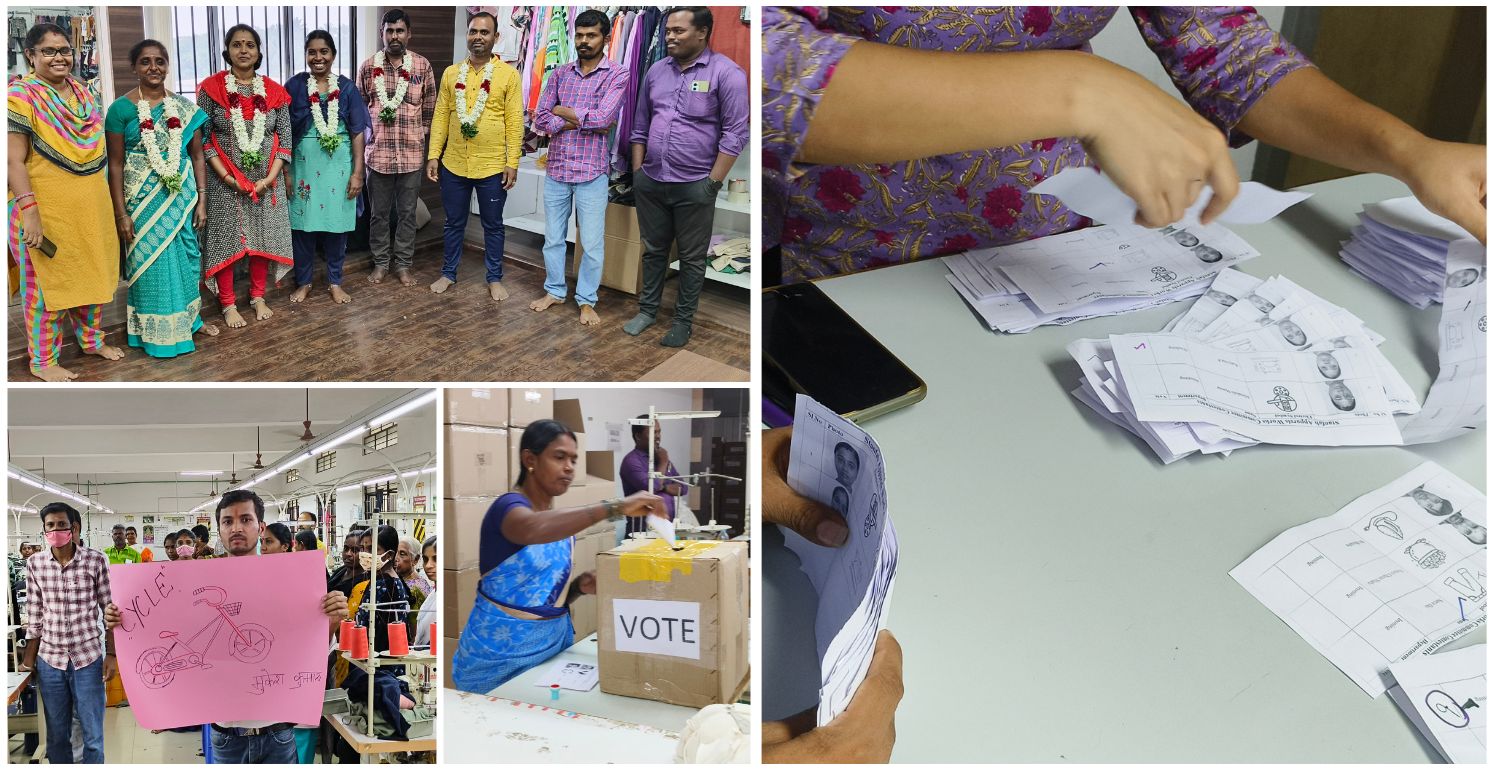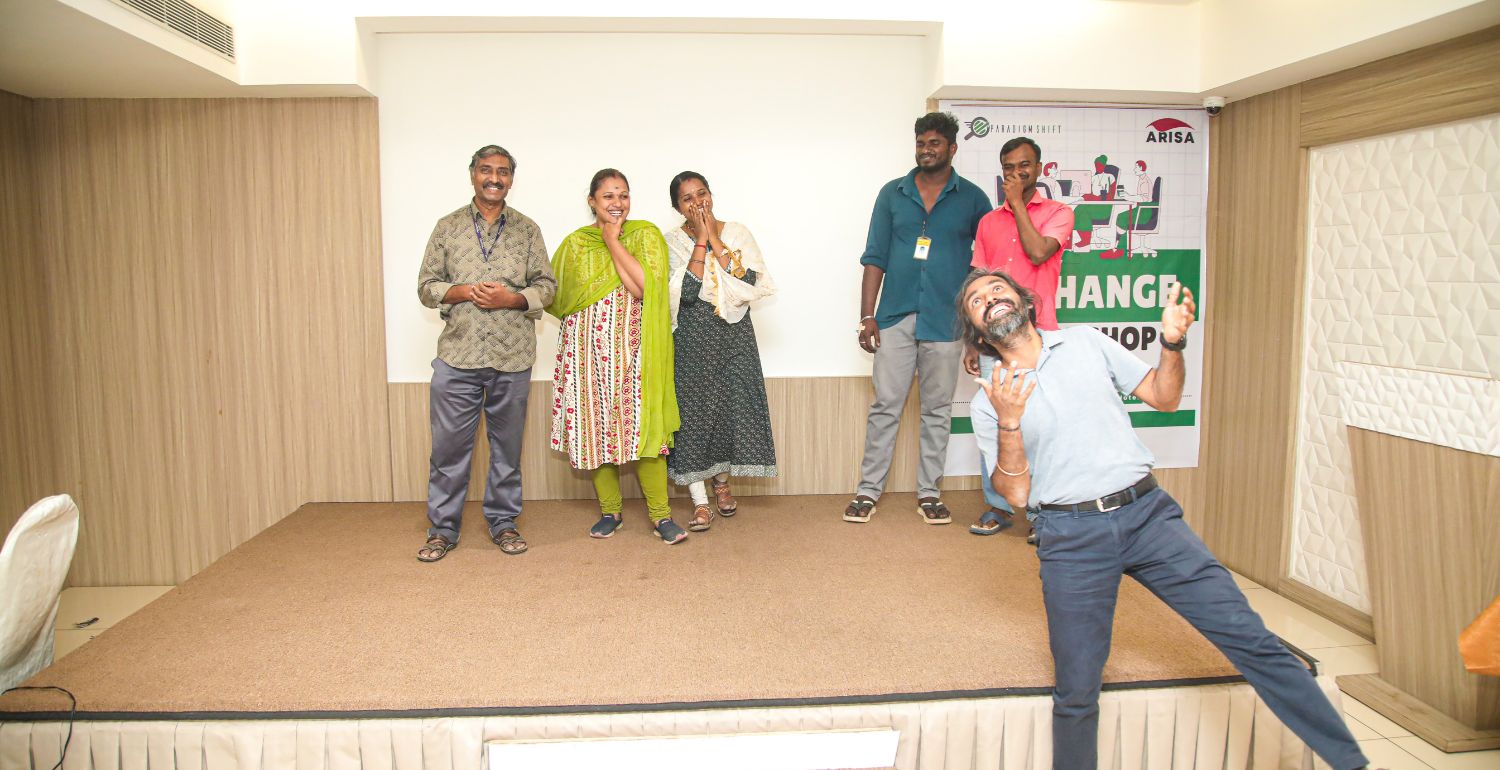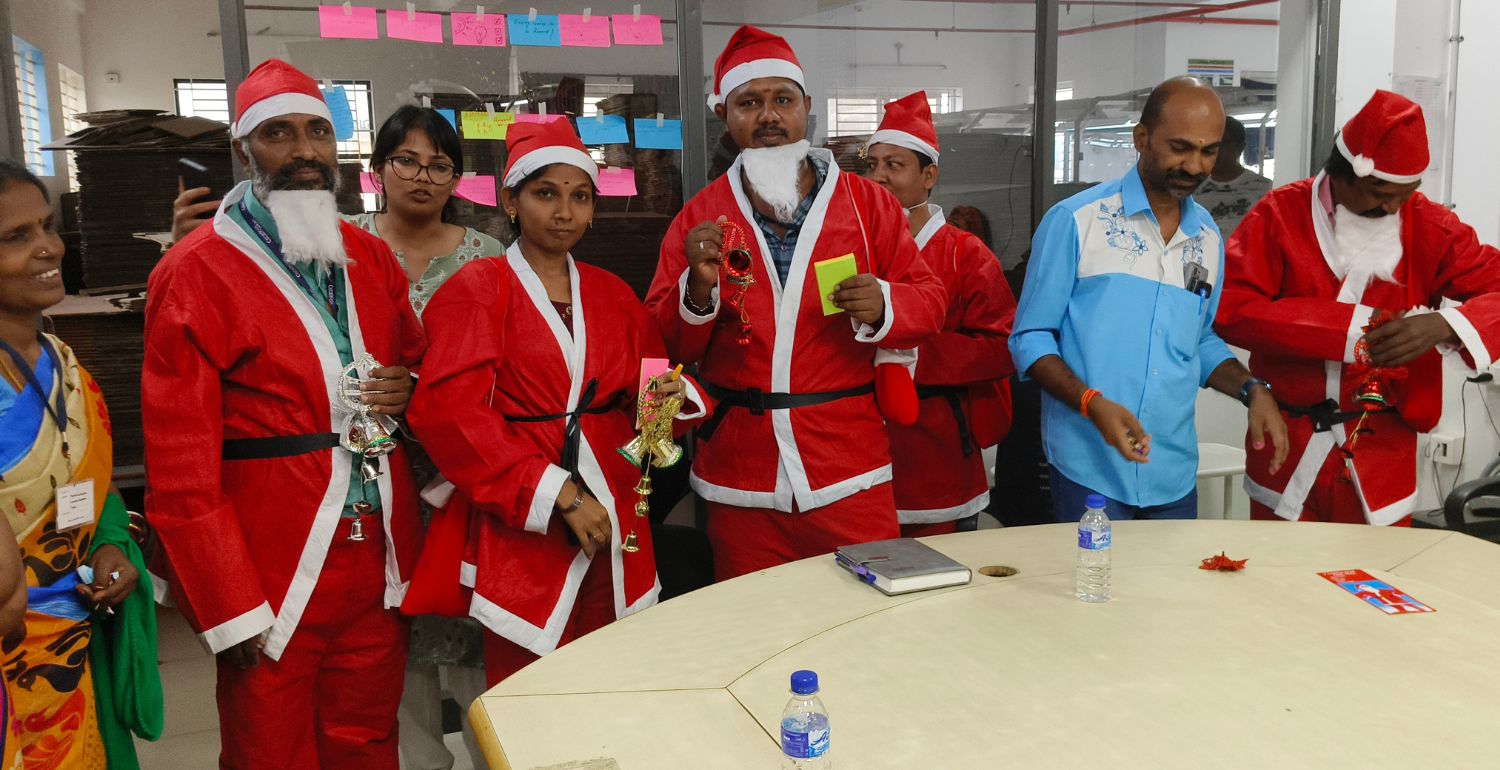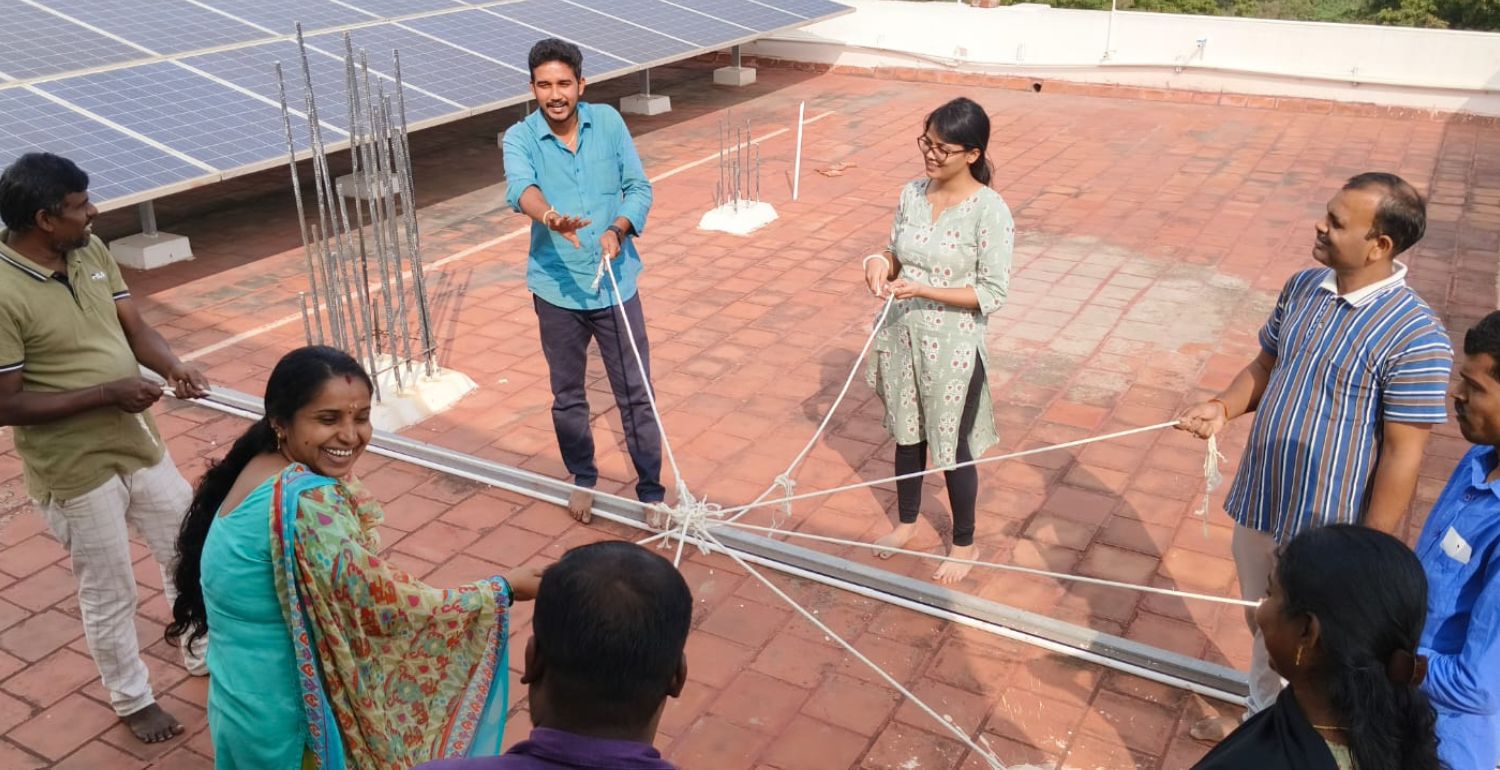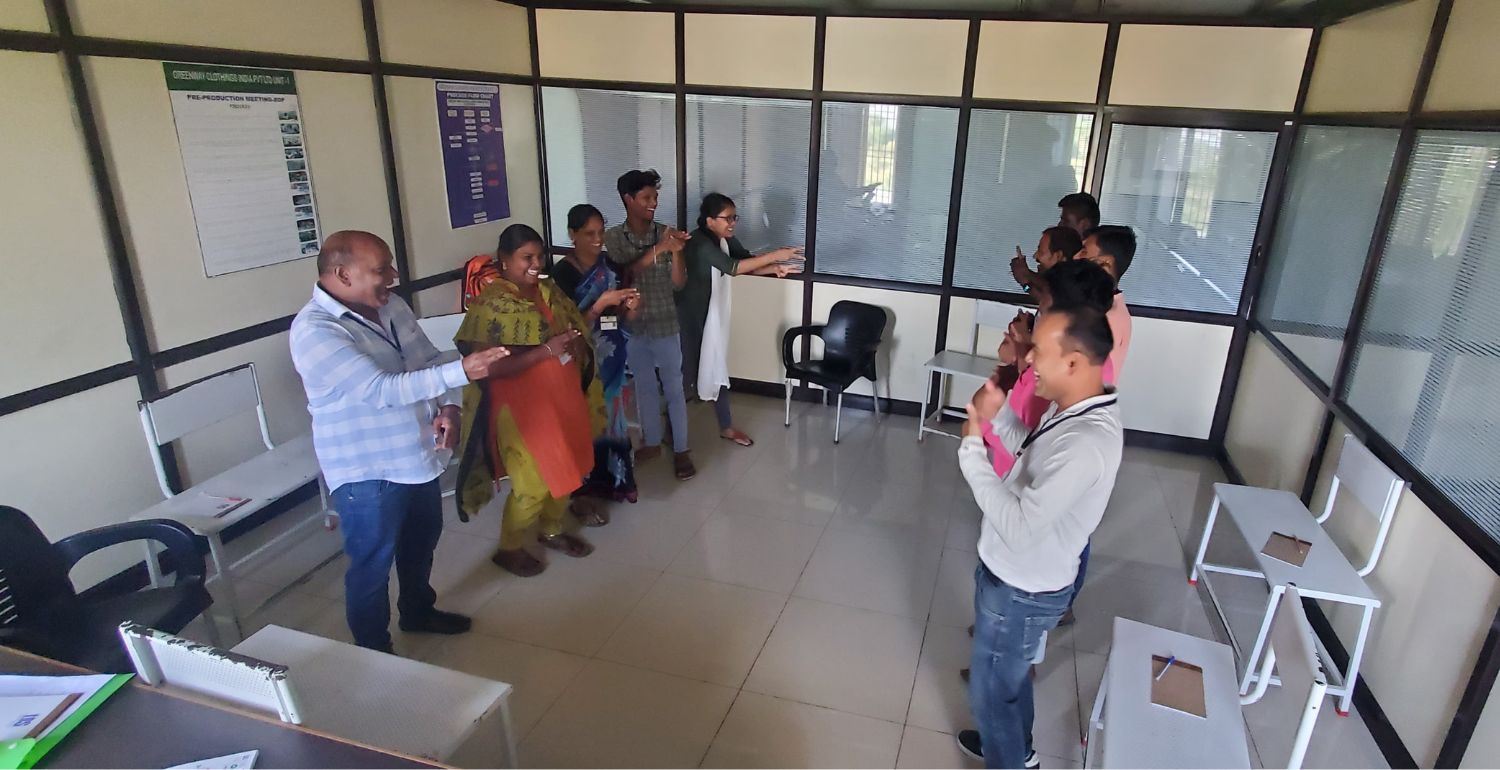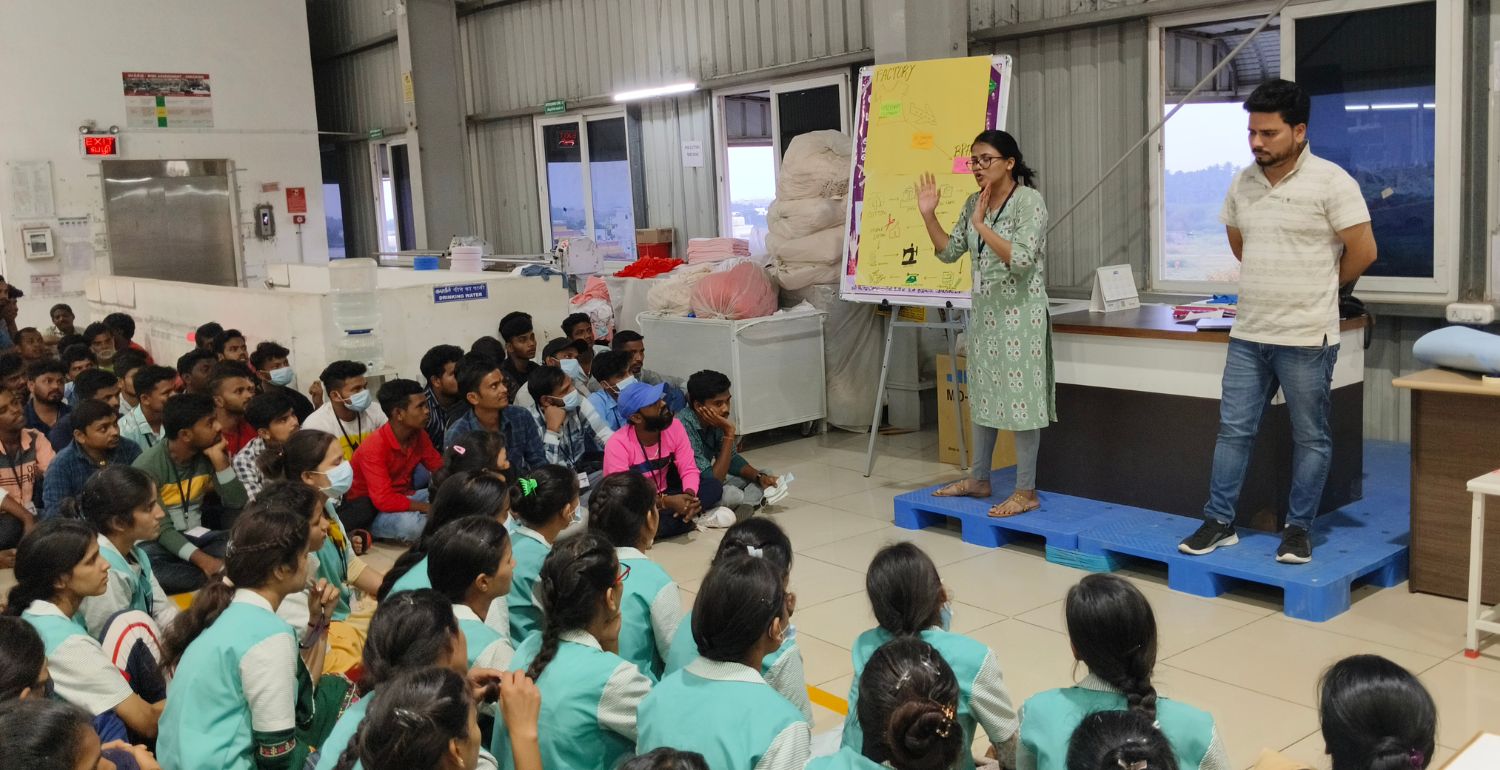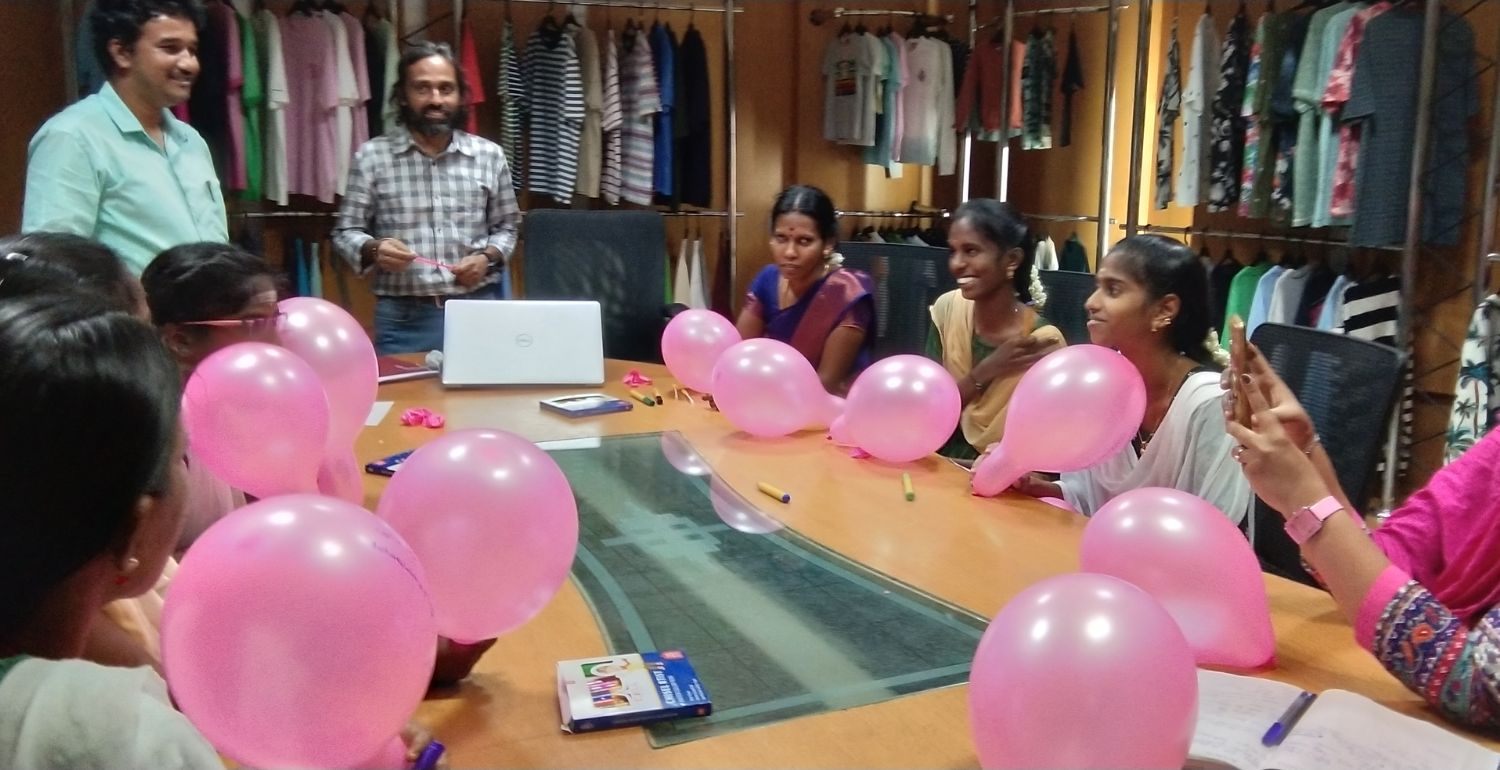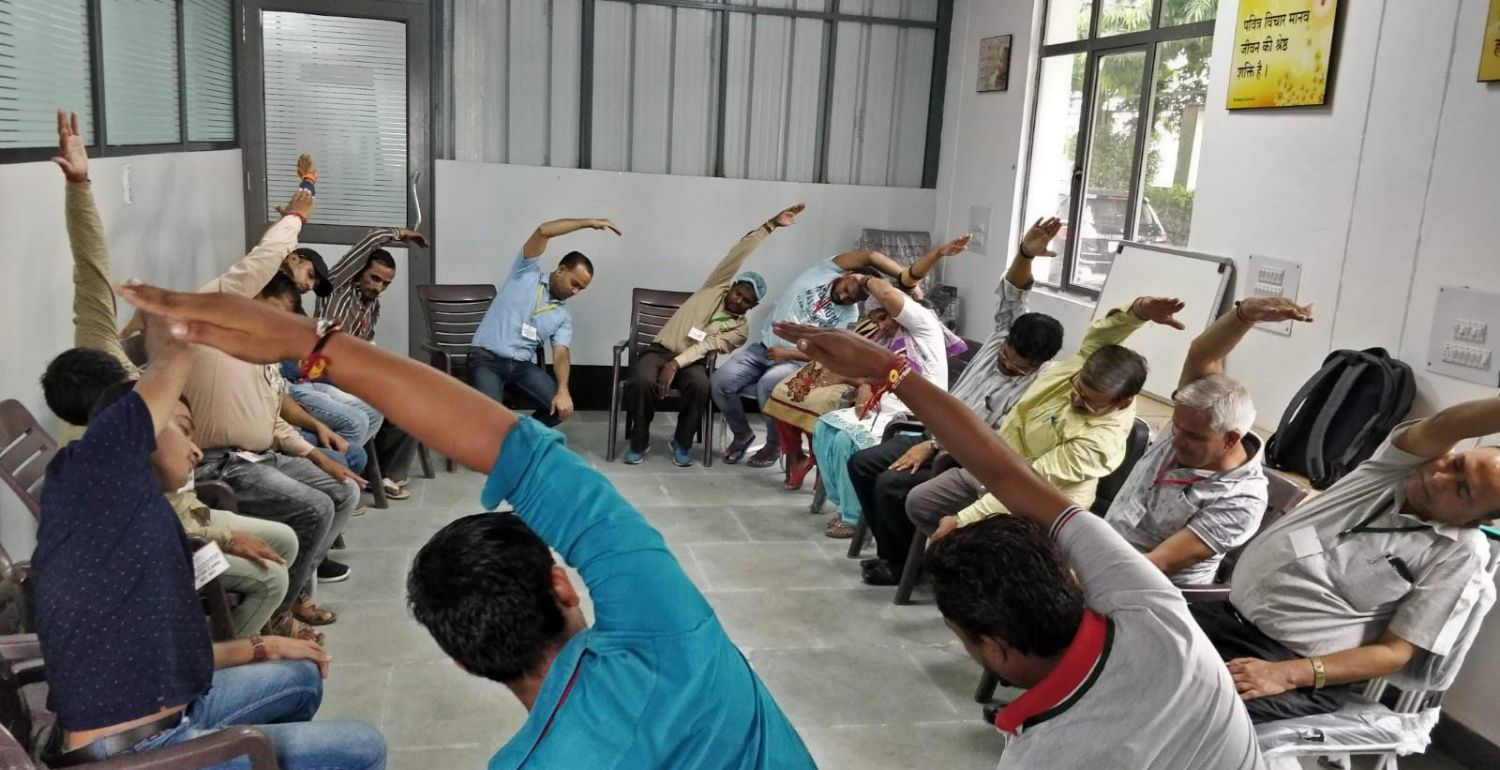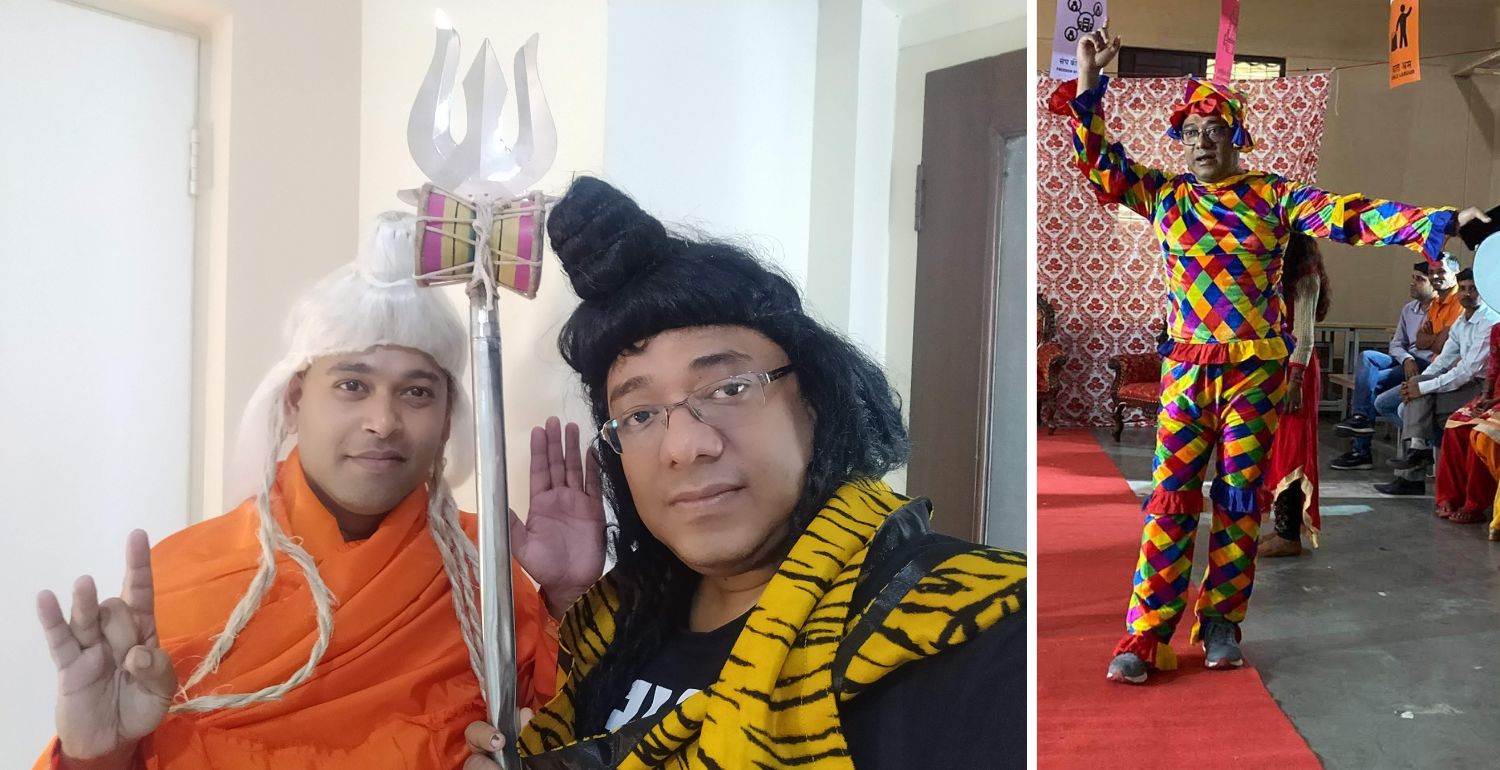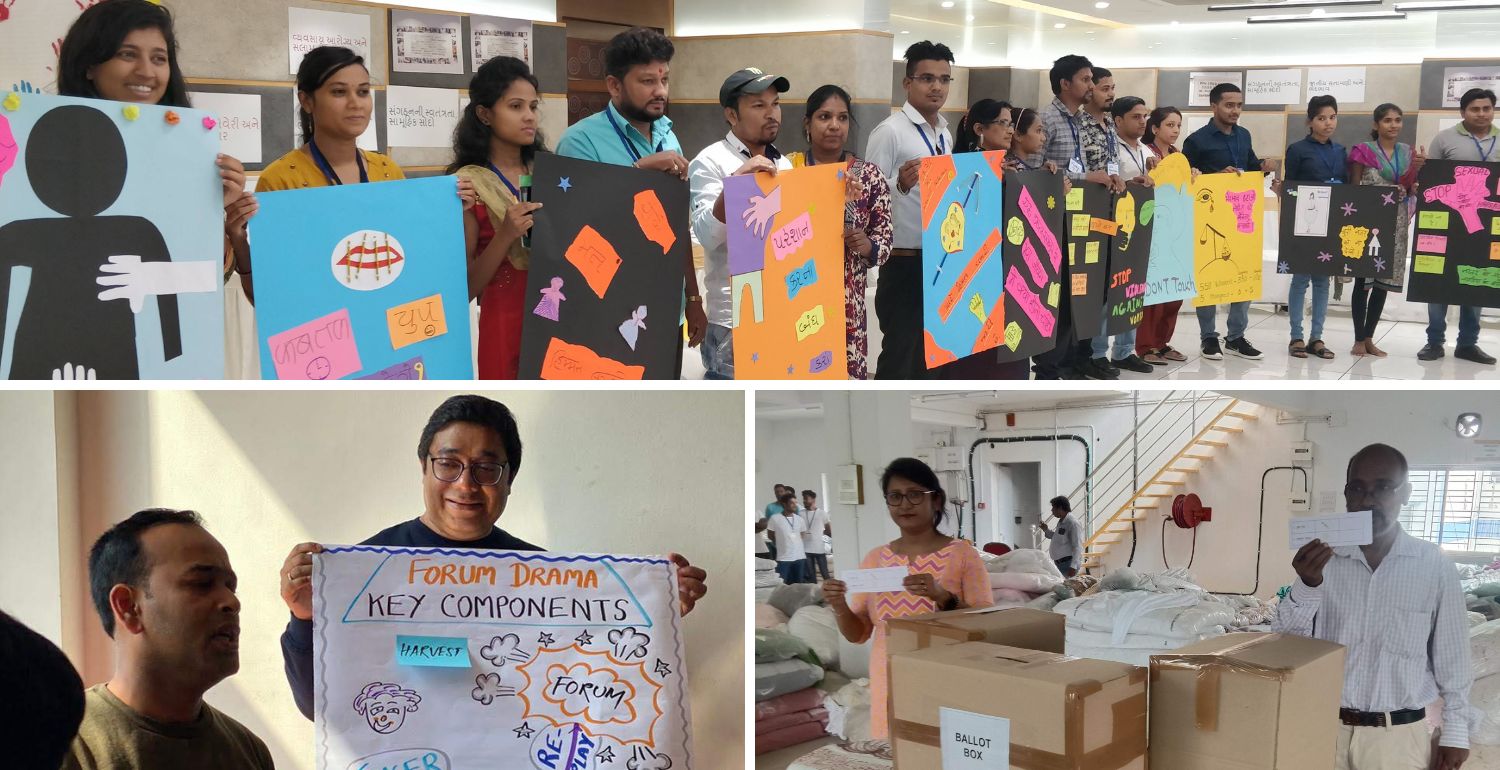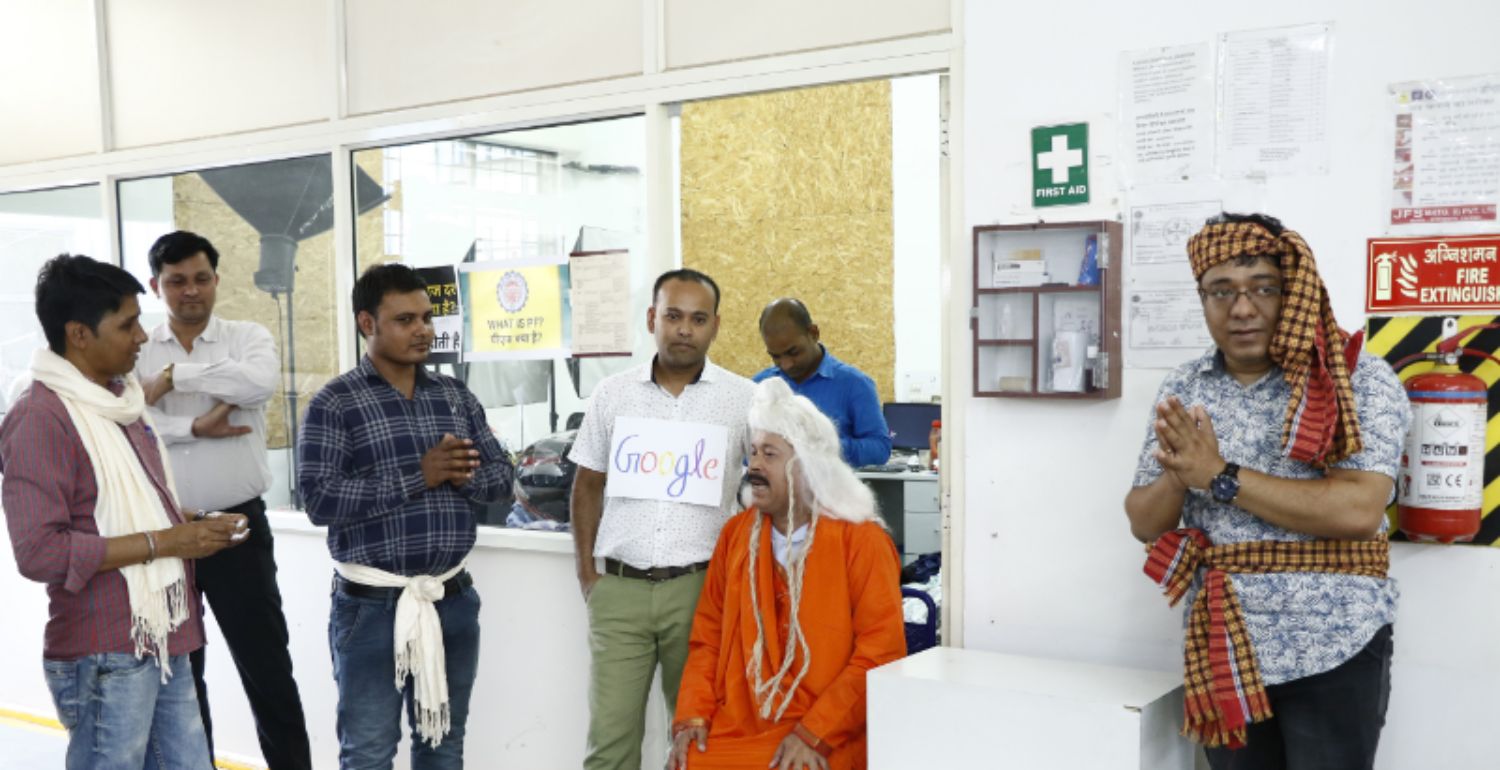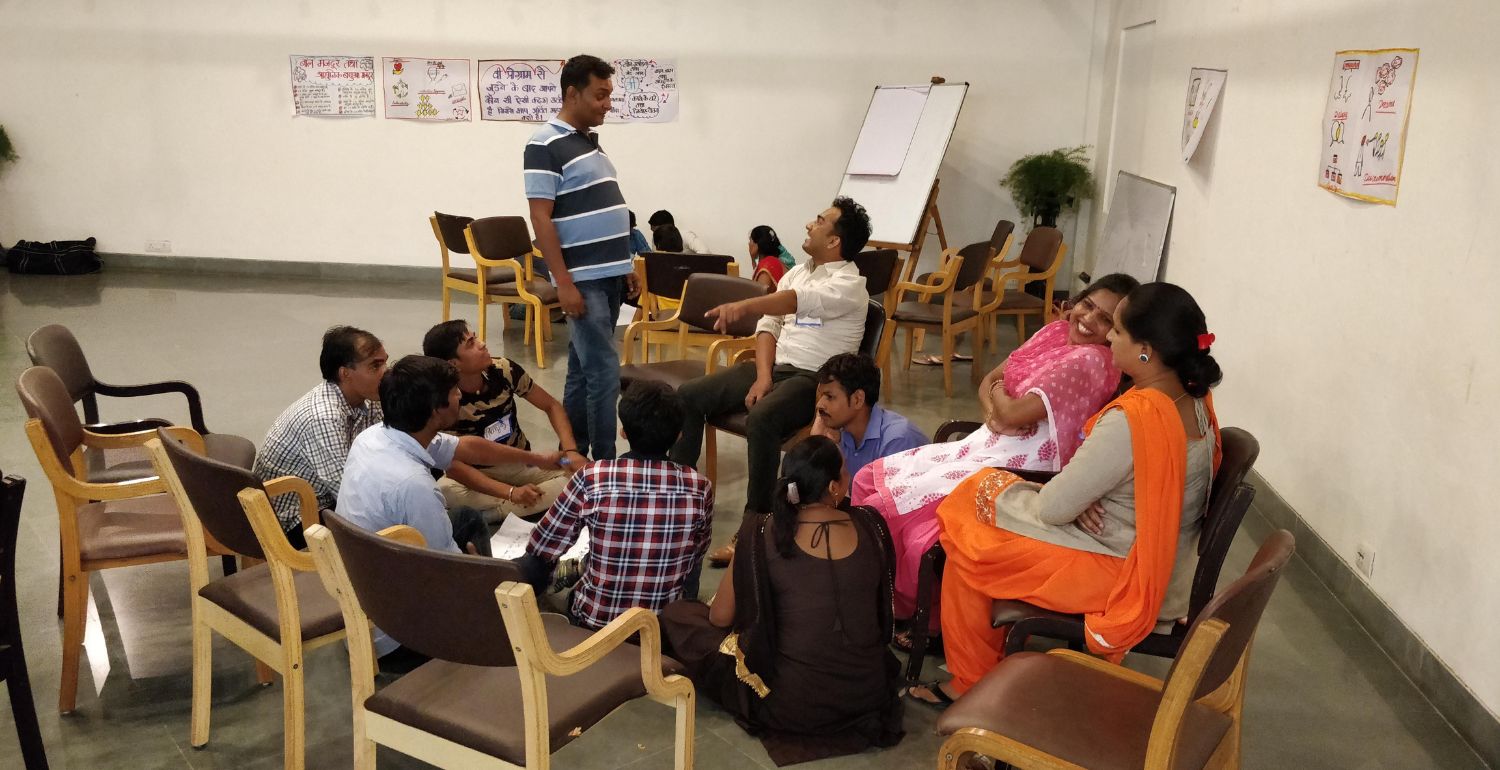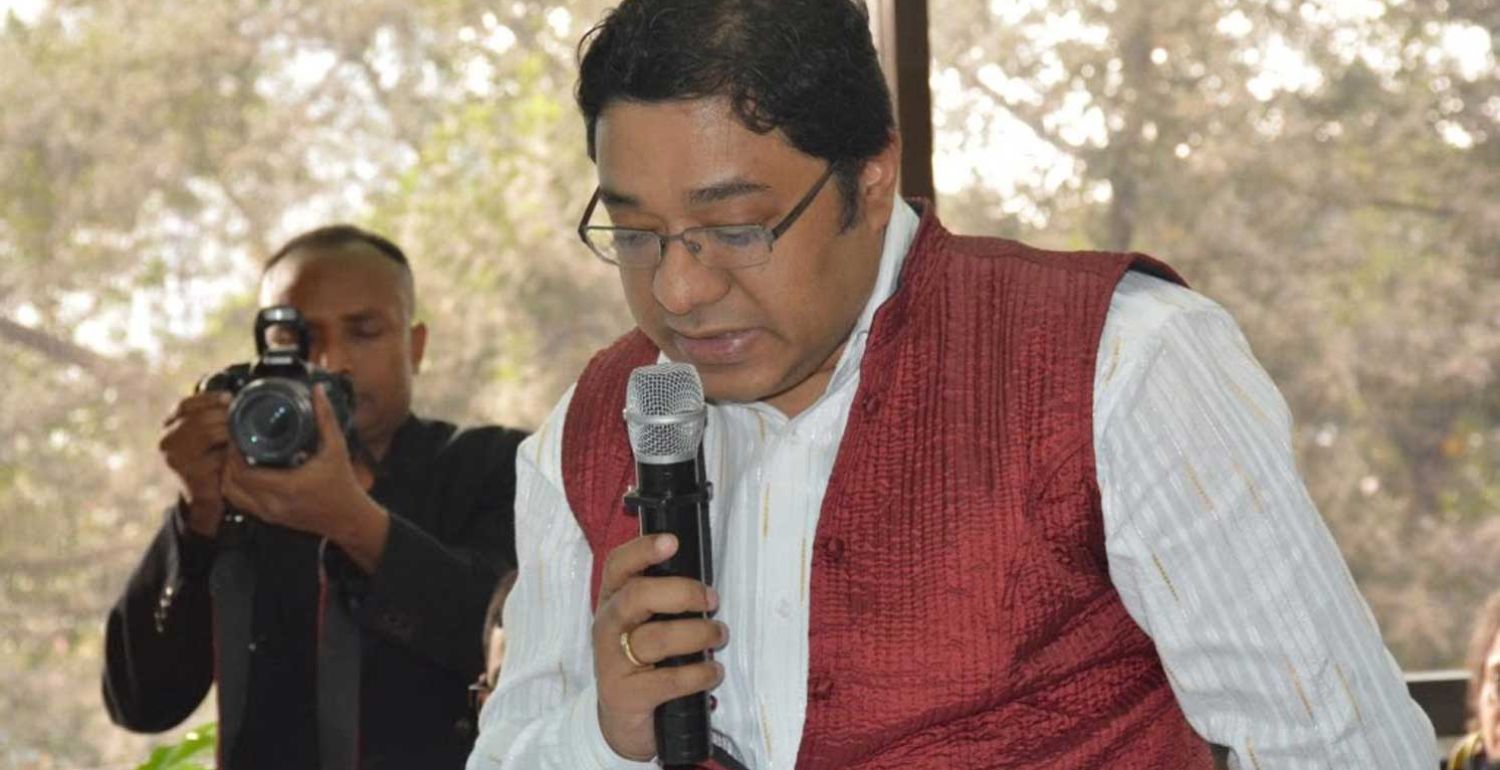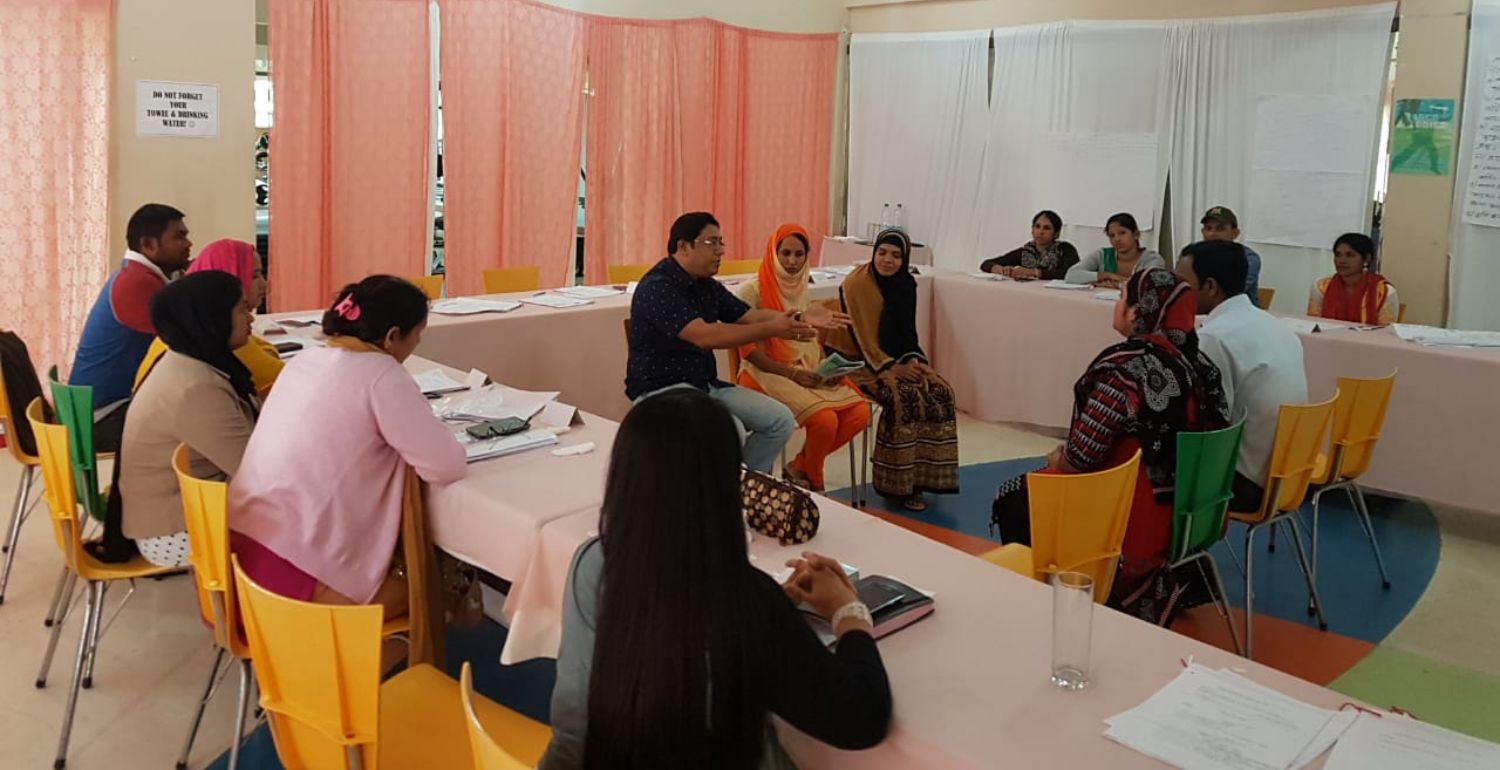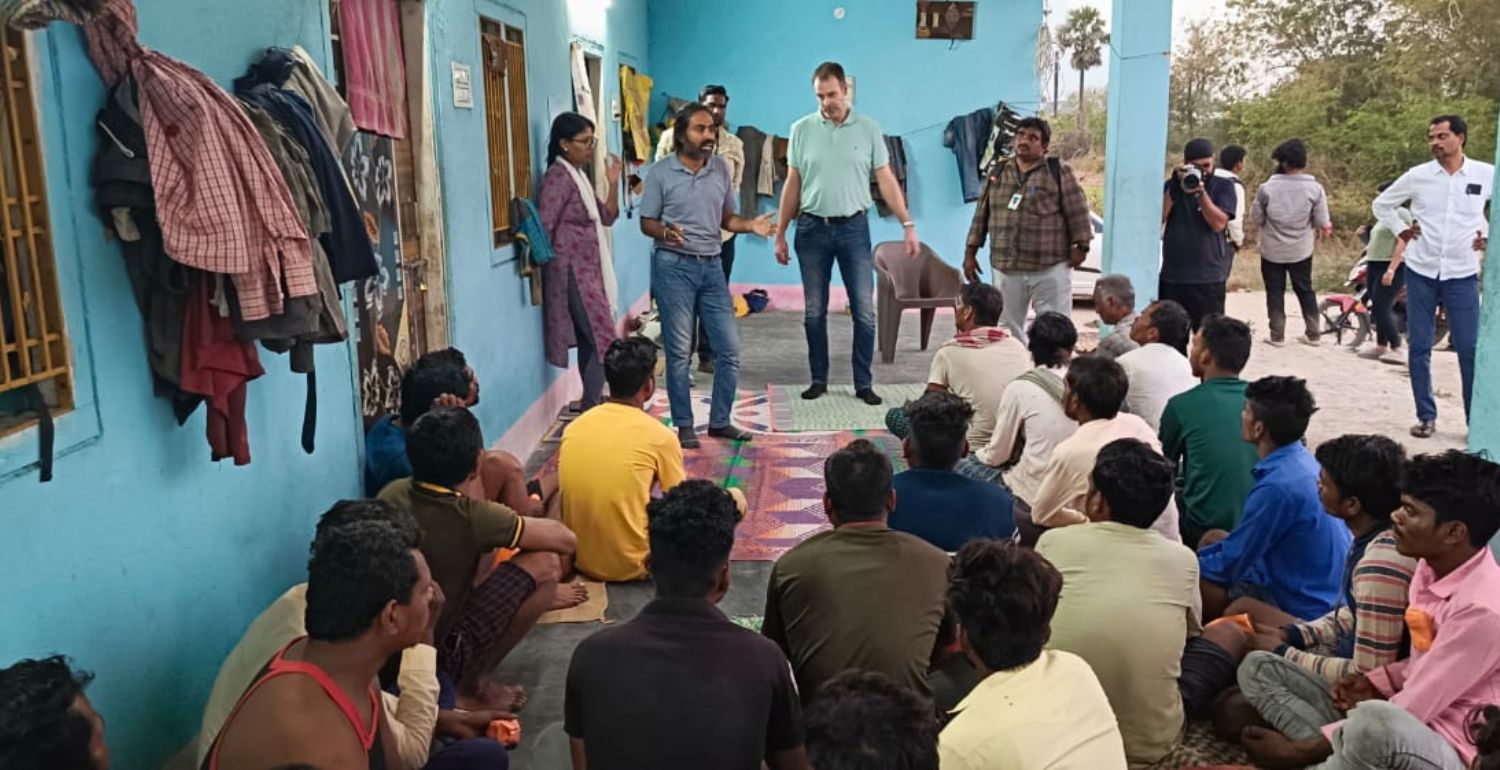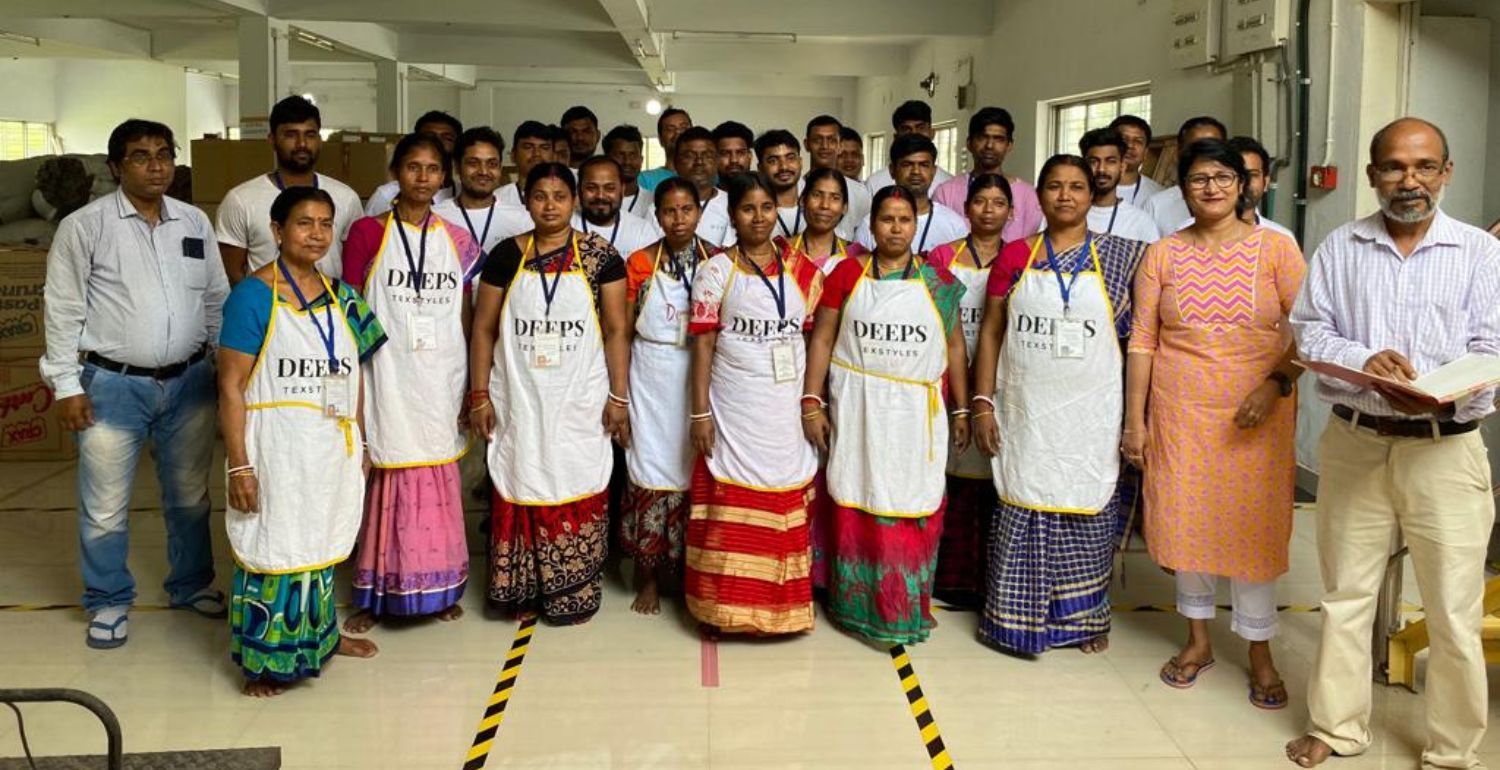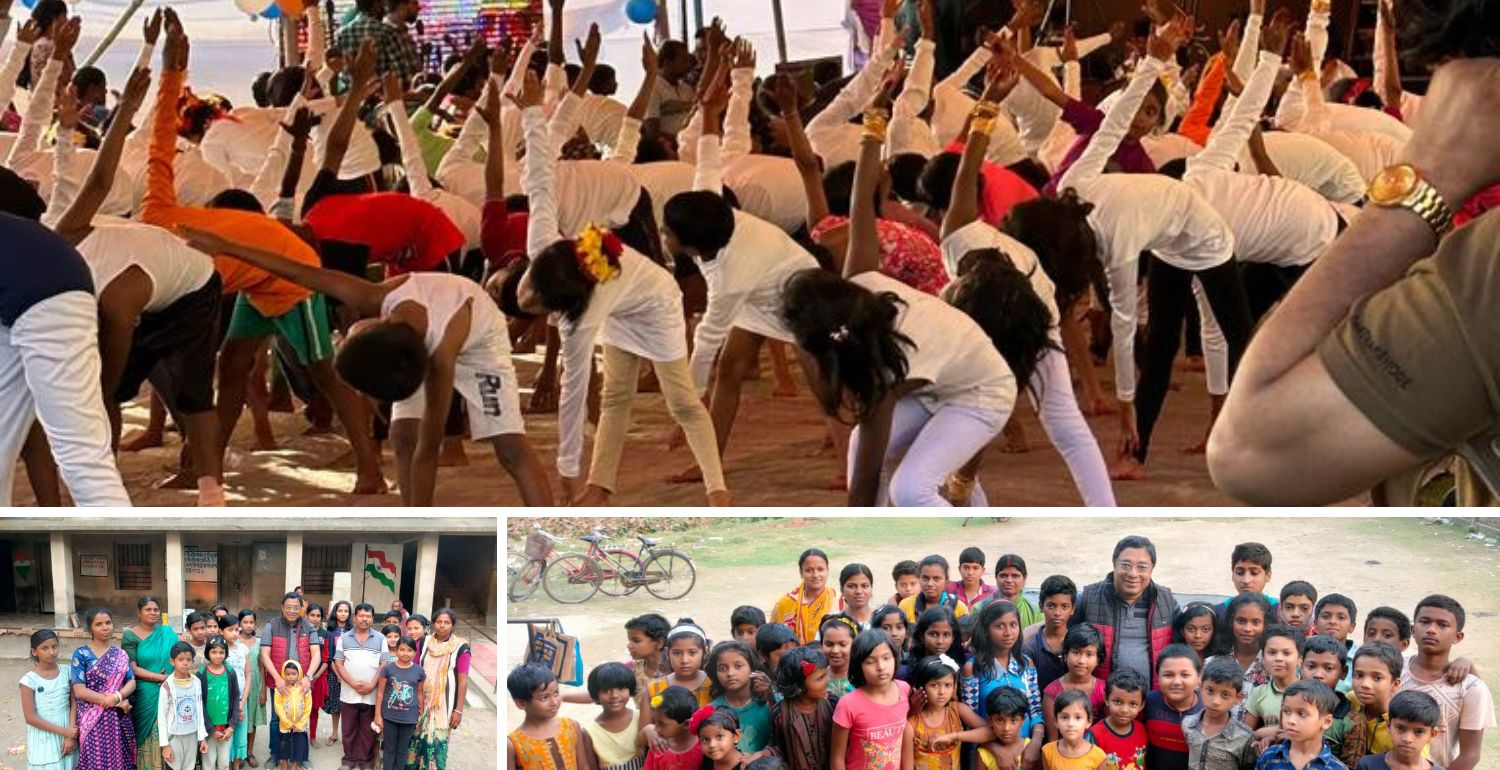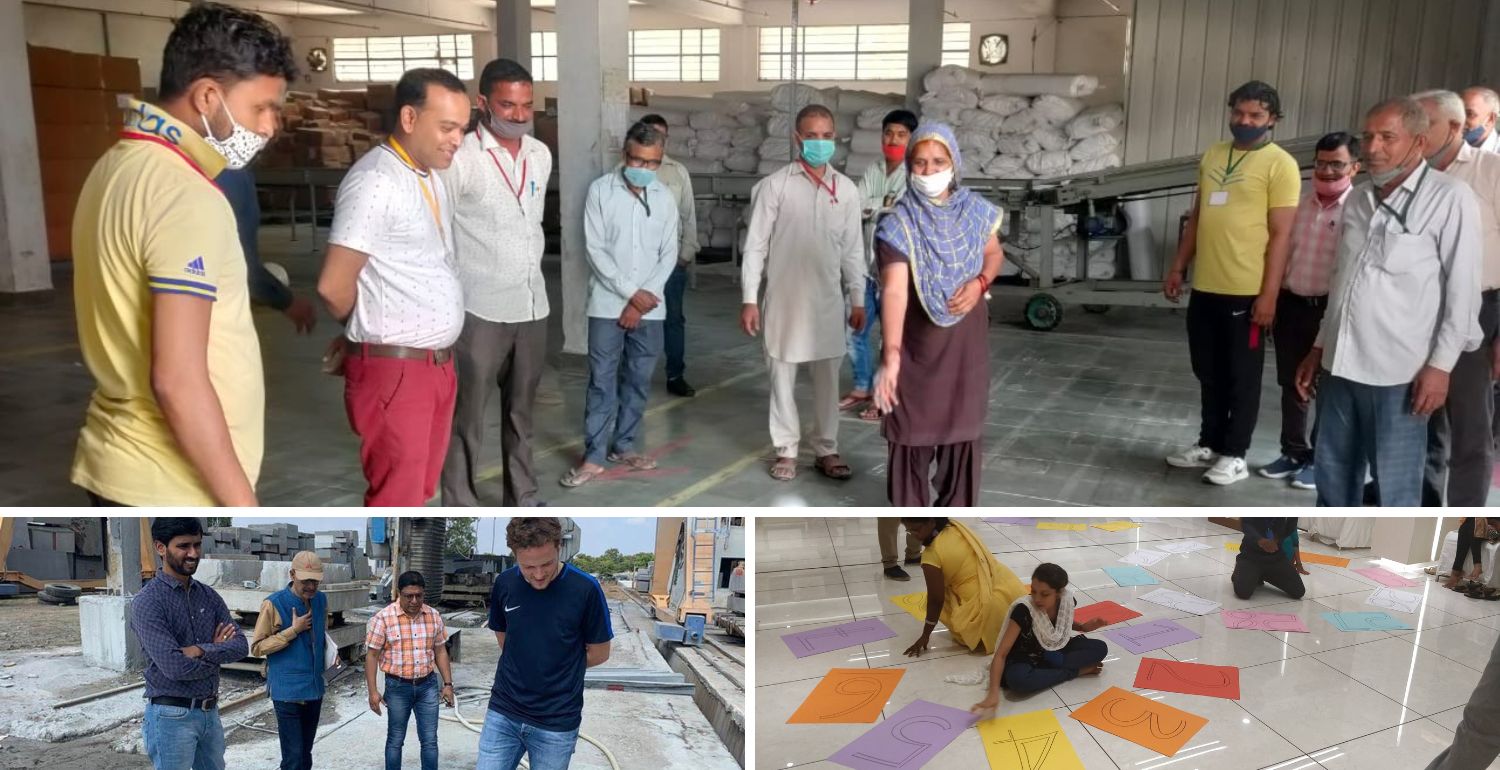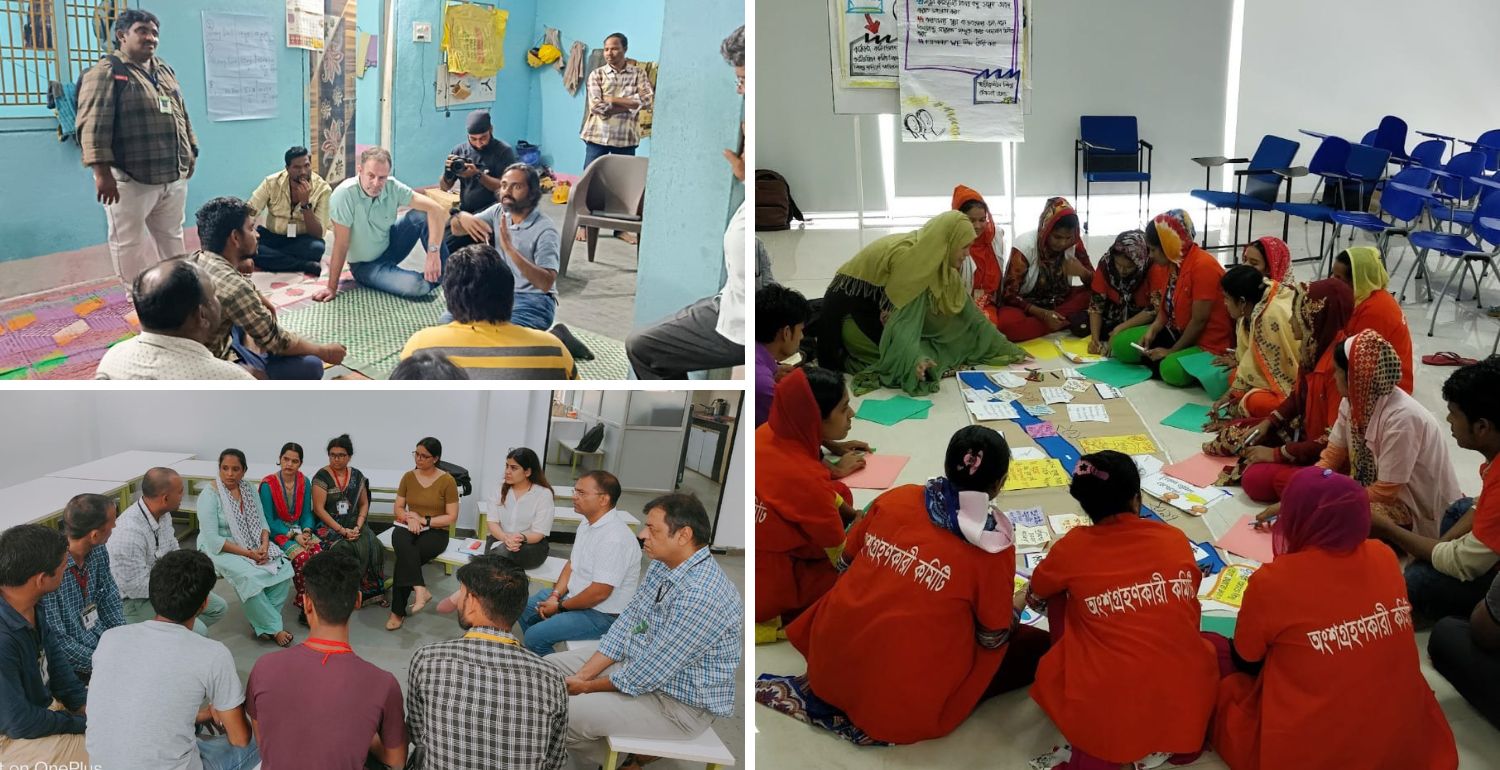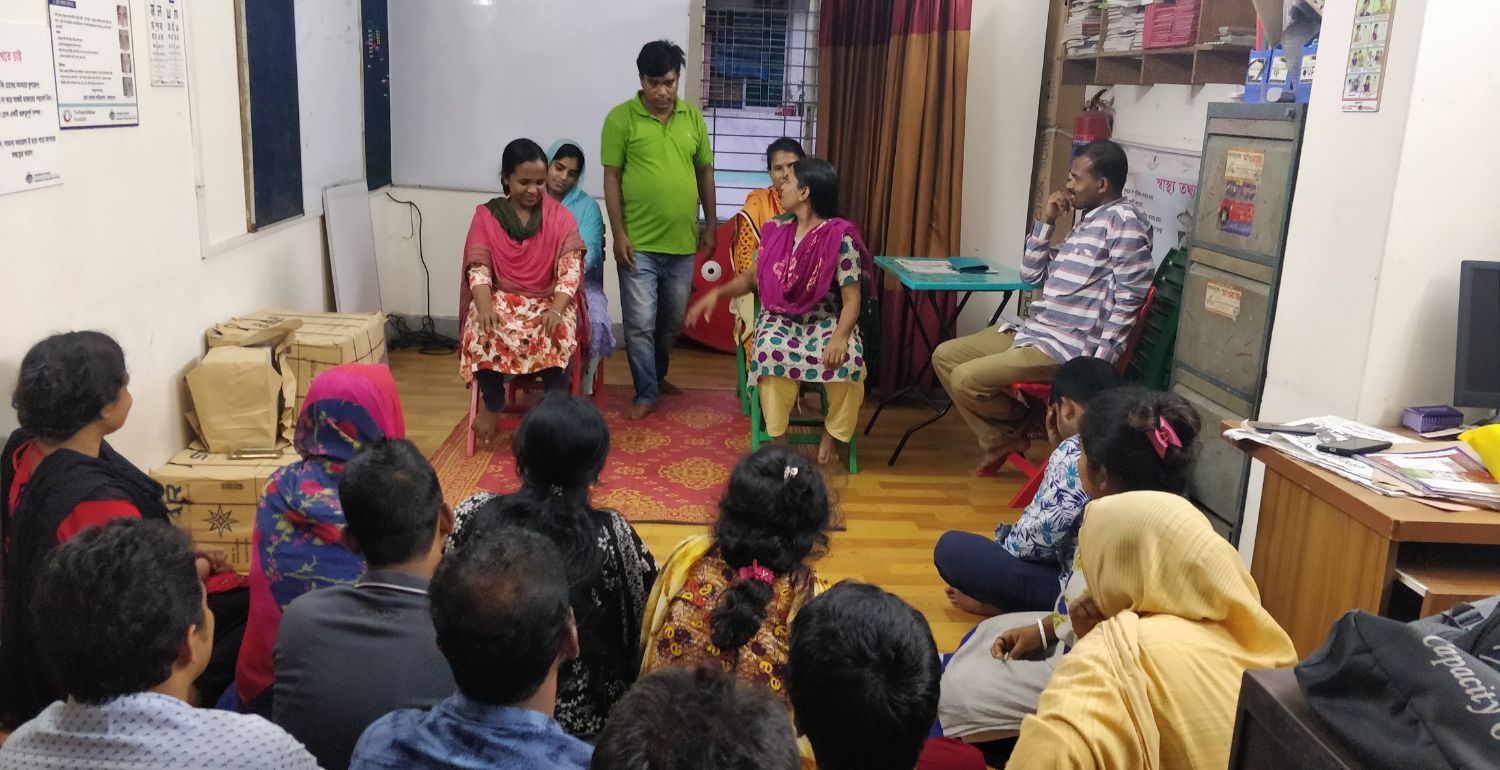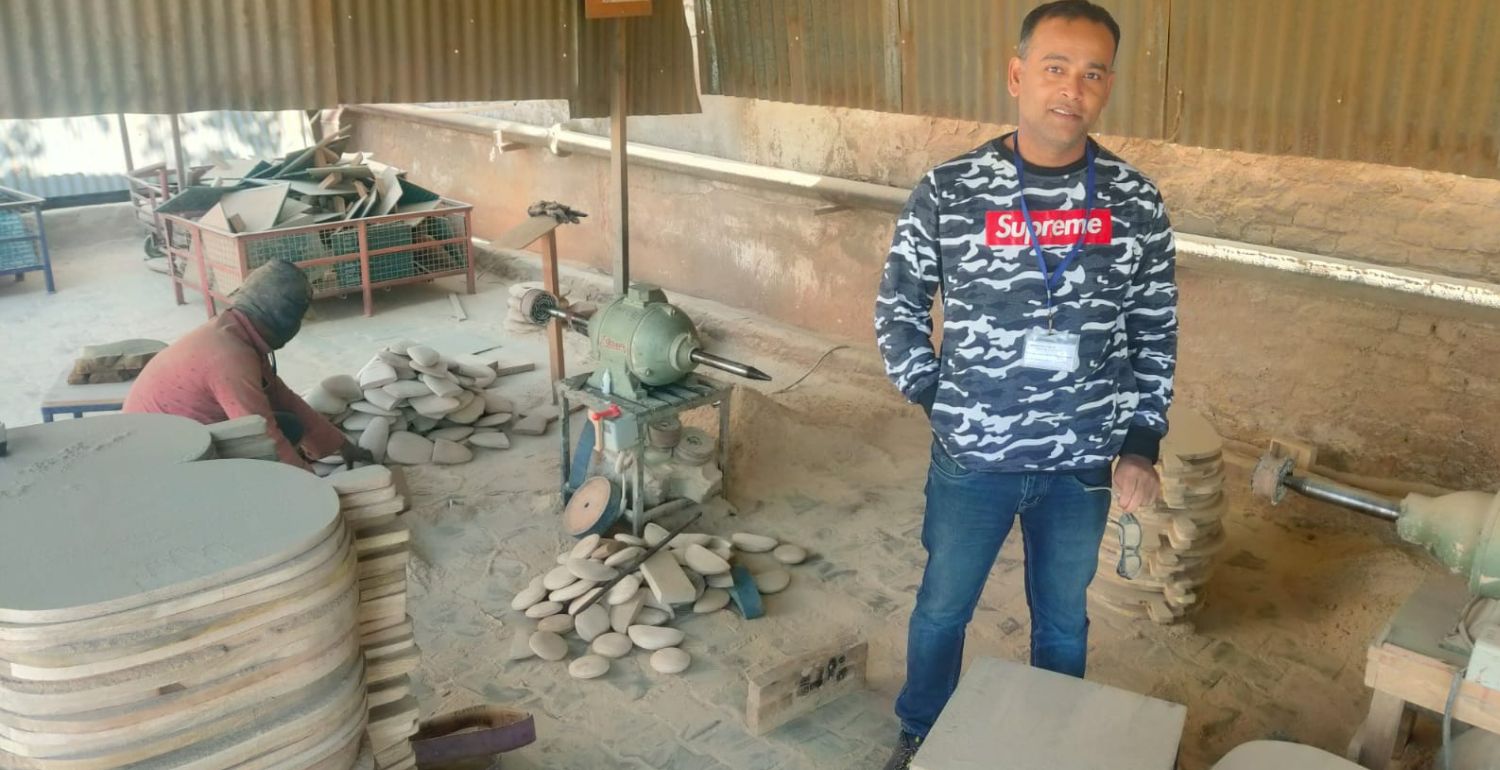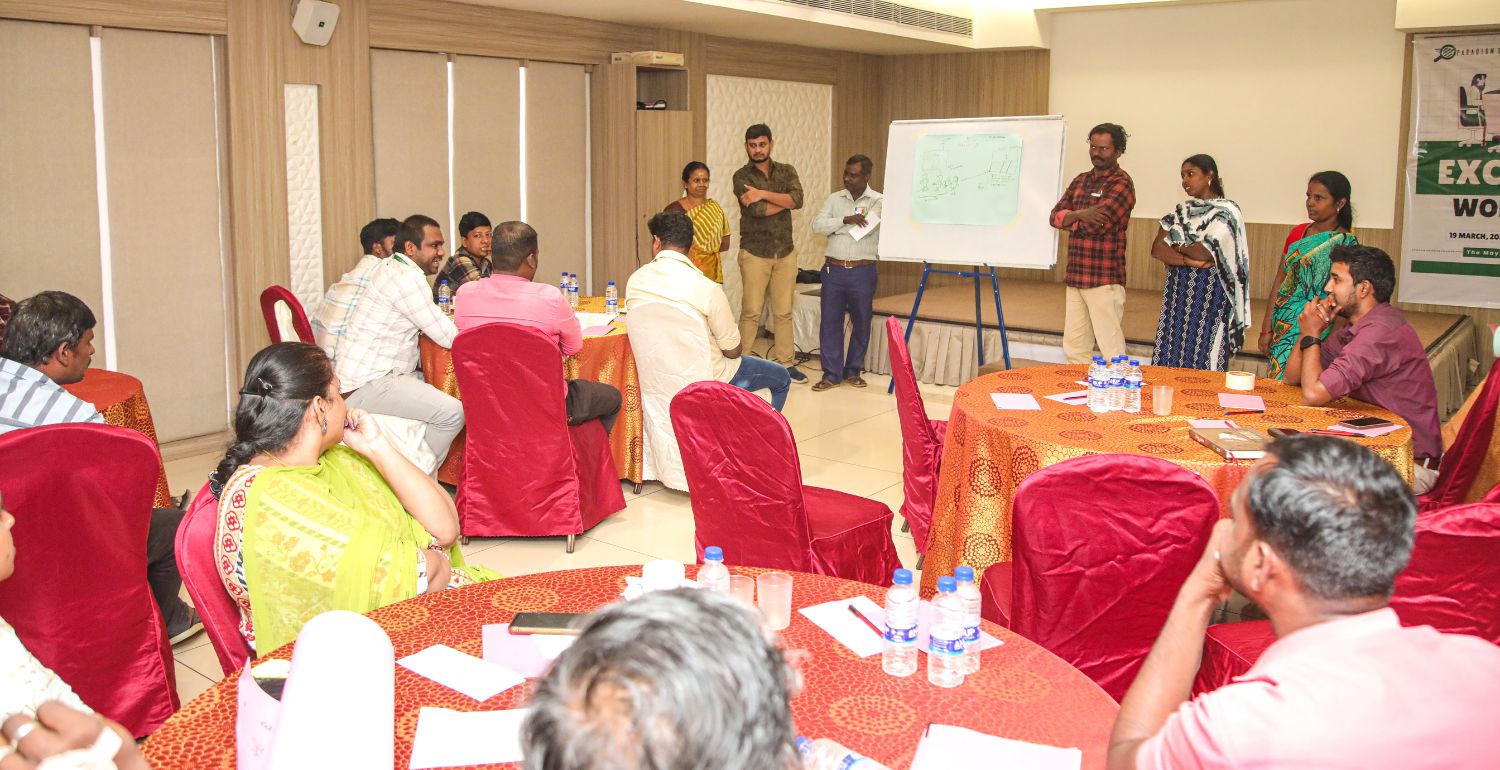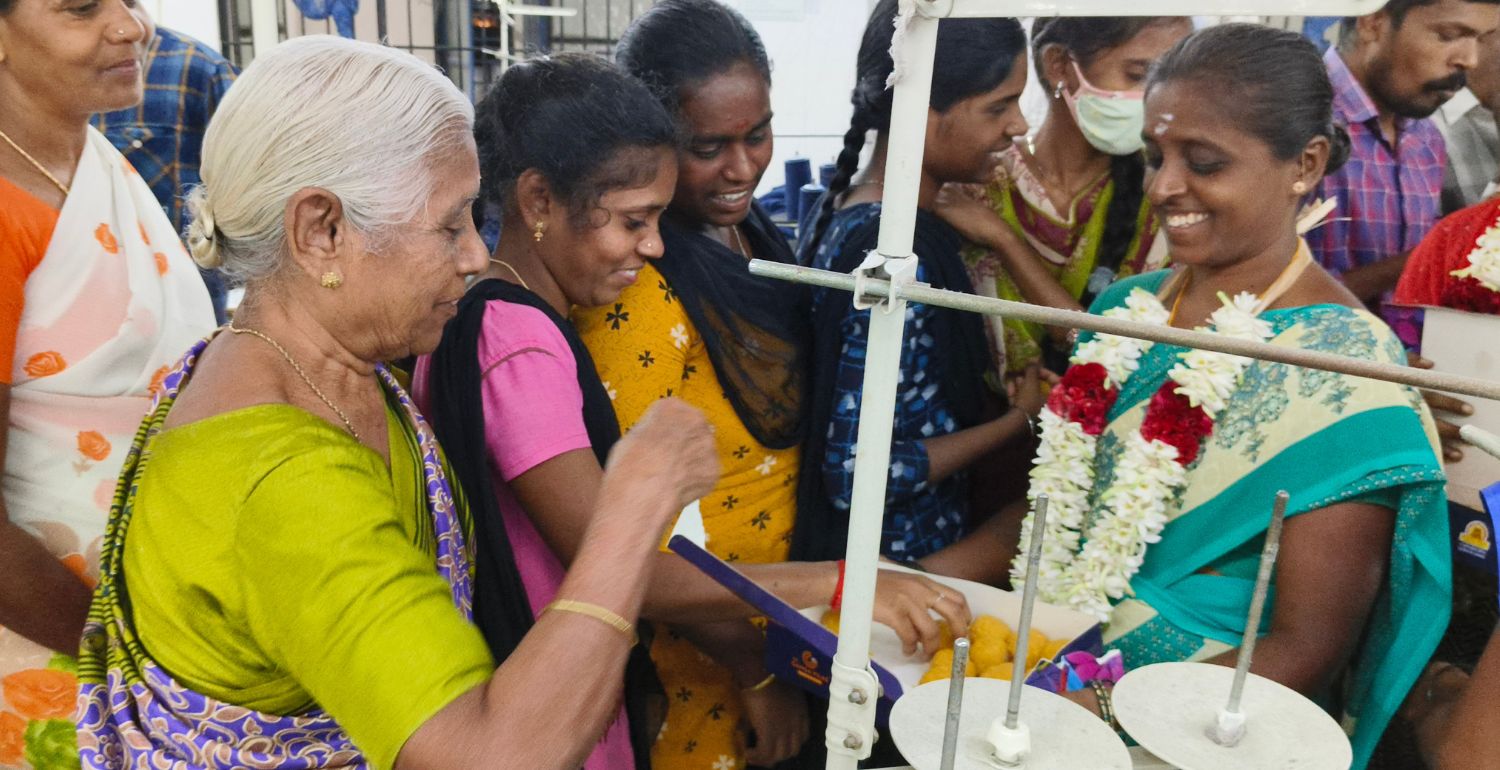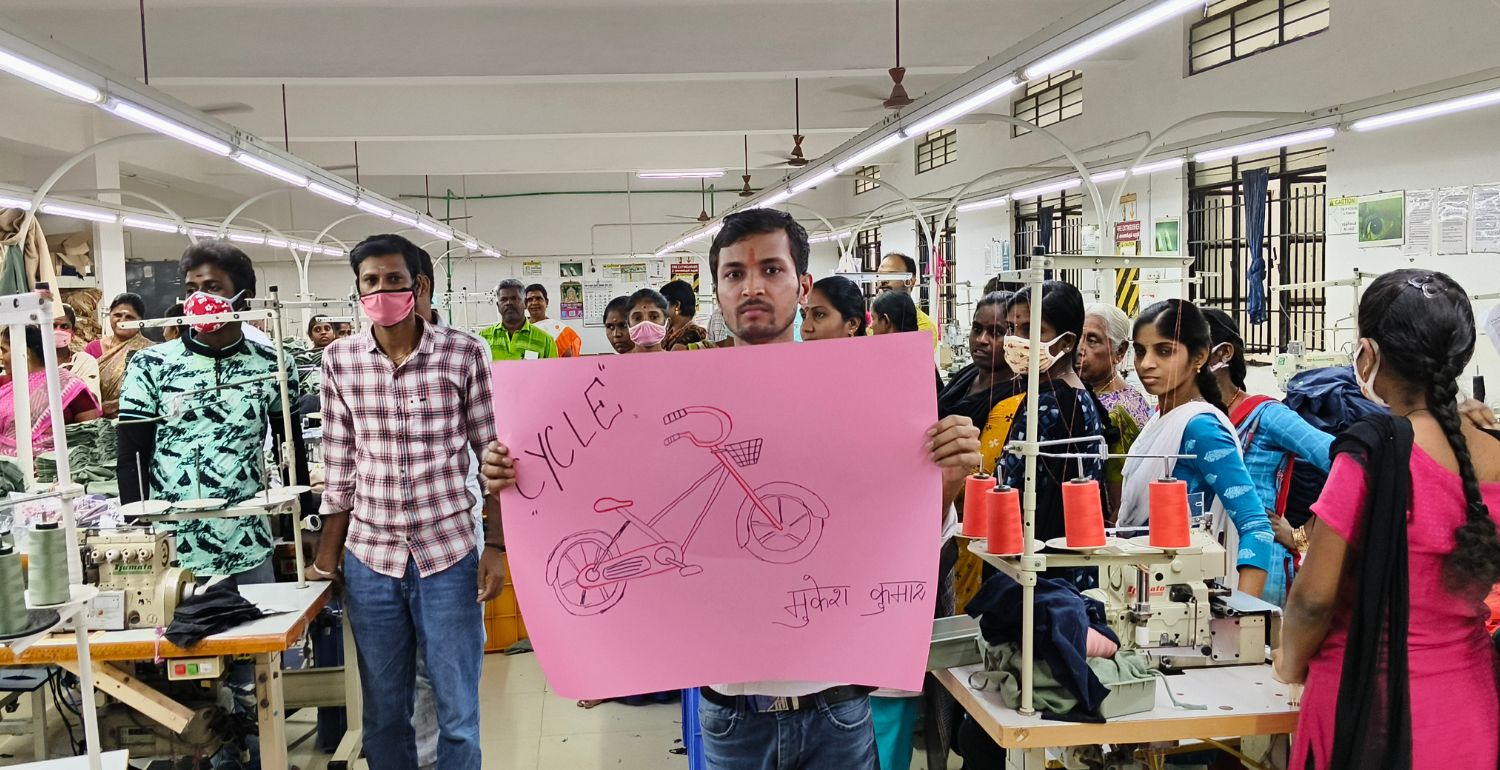A vibrant team of social dialogue experts, engineers, trade unionists, theatre activists, labour and human rights experts, economists, public health experts and environmentalists from many countries came together to form an out of the box working platform called Paradigm Shift.
Vision
Institutional strengthening through inclusive action and dialogue on Human Rights & Environment to ensure sustainable business & supply chain.
Mission
Bringing a paradigm shift in Beliefs, Practices, Communication & Evaluation approaches in the supply chain.
Our background and genesis
We sincerely believe:
-
Exploring power of creativity and collaboration which drive business performance
-
Unusual but grounded thinking can ensure returns beyond imagination
-
Understanding diverse culture, languages & communities can only create mutual trust and respect
-
Professional, systematic and open approach with time-bound action plans for implementation
Paradigm Shift is specialized in Supply Chain Monitoring, Social Dialogue, Conflict Management and social and environmental impact assessment. We are headquartered in Kolkata with offices in Delhi and Dhaka (Bangladesh) and have active presence in Indian Sub-Continent, China, South East Asia, Gulf Region and Africa.
What do we mean by ‘Paradigm Shift’
A paradigm shift is scientifically and philosophically defined as:
-
A massive change or shift in the framework containing the basic assumptions, ways of thinking, and methodology that are commonly accepted by members of a community.
-
Where your set of beliefs that shape the way you view the world and how it works are challenged through inclusive dialogue . It questions all of your assumptions, projections, beliefs, values, way of doing things, and why you do them.
-
When we undergo a paradigm shift, it opens up a WHOLE NEW world to us and because this creates a huge wave of expansion, paradigm shifts are usually felt the most intensely out of all other shifts because it creates a great deal of contrast between (1) what you used to think and (2) what you think now.
For instance, a real-world example of a paradigm shift would be when scientists used to think the Earth was flat. Imagine the huge contrast (and even disbelief) it created when they realized the Earth was round. It literally changed the way they thought about everything and the way the world works!
Our Flagship Programs
Participatory Social Audit© – New Kid in Town
With an objective to mitigate the gaps and challenges of a social compliance audit, Paradigm Shift has been researching and piloting on revamping the entire audit approach itself while keeping the basic protocols intact. The fundamental question which we asked ourselves while coming up with this concept is “what if audits can be a facilitative and capacity building tool for change rather than a policing tool?” This was one fundamental change based on which Paradigm Shift came up with the concept of “Participatory Social Audit”©. In the entire process, importance is given on not only monitoring and identifying non compliance together, but also on facilitating internal capacity building on thematic issues as well as solution planning. The whole concept is built on the belief of dialogue and co-creation.
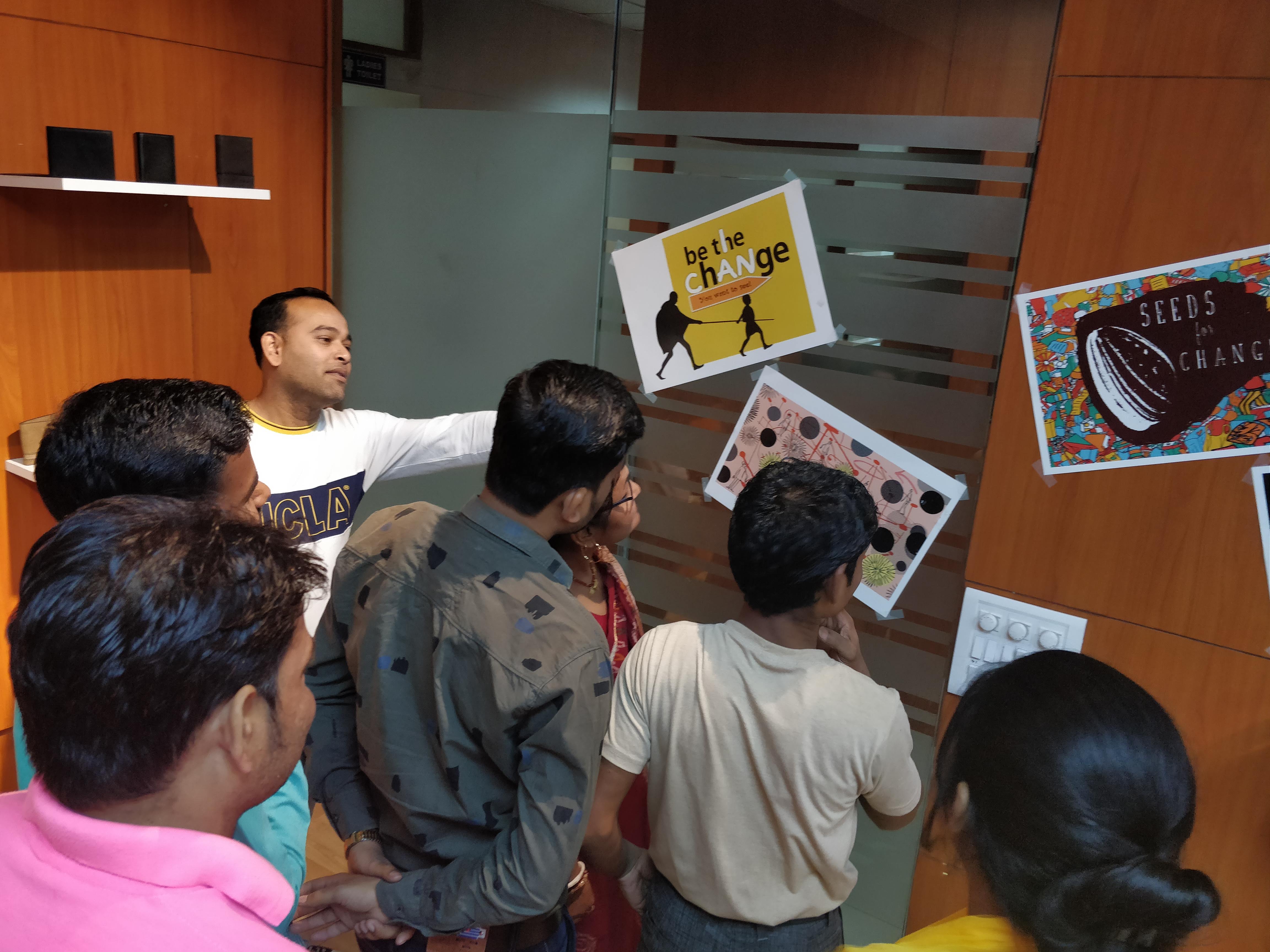
Social Dialogue Through Forum Theatre & Storytelling
Flagship program whose ultimate goal is to promote a dynamic, inclusive and reinforced social dialogue for workers, officials, trade unions, and civil society organizations on core human rights topics. We have successfully applied Forum Theatre based on Theatre of the Oppressed (TO) as a creative tool for personal and social transformation. A form of interactive theatre that enables a community to explore multiple strategies in response to a problem/conflict presented on stage. Forum play presents a problem, not a solution. It does not preach. It does not judge. It invites spectators to participate in the performance - not through suggestions, advice or discussion, but by replacing one of the characters in the play, and 'acting' in his/her place- that is, by becoming spect-actors. They are not 'acting' in the sense of 'performing', but simply 'taking action' as they do in real life. Forum is also an opportunity for people to try out strategies that they may not get an opportunity to try in real life- thus it serves as a rehearsal, and with none of the risks of real life action- it's all happening in a play!
Storytelling provides a powerful means to obtain information and learn about the best practices and impact of projects and activities of grassroots groups from community members’ experiences and viewpoints. The narratives offered by provide meaningful information that can highlight both the strong points and weaknesses of a project, as well as any unintended consequences. Storytelling can bring out rich, colorful, and emotionally compelling information. Sharing and listening to stories builds bonds of trust and opens doors for relationship, which is essential for creating change.
Supply chain mapping and risk assessment
Assessing supply chain risks related to social complaints and grievance redressal mechanisms.
Here's how we approach it:
Identification of Stakeholders: Identify all stakeholders involved in the supply chain, including workers, local communities, NGOs, and advocacy groups. Understand their concerns, expectations, and potential grievances related to social and labor practices within the supply chain. Assessment of Social Compliance Risks: Evaluate compliance with labor laws, ethical standards, and industry best practices across the supply chain. Assess risks related to labor rights violations, including issues such as forced labor, child labor, discrimination, and unsafe working conditions. Consider risks related to environmental practices, community relations, and human rights issues. Evaluation of Grievance Redressal Mechanisms: Evaluate the effectiveness of existing grievance redressal mechanisms within the supply chain. Assess the accessibility, transparency, and responsiveness of these mechanisms for addressing social complaints and grievances. Identify gaps or weaknesses in grievance redressal processes that may leave stakeholders feeling unheard or dissatisfied. Mapping Social Hotspots: Identify geographical areas or specific stages of the supply chain where social compliance risks are higher. Continuously review and update risk mitigation strategies based on feedback, emerging issues, and changes in the social and regulatory landscape. By systematically assessing social complaints and grievance redressal mechanisms within the supply chain, businesses can identify and mitigate risks, enhance social responsibility, and build more resilient and sustainable supply chains.
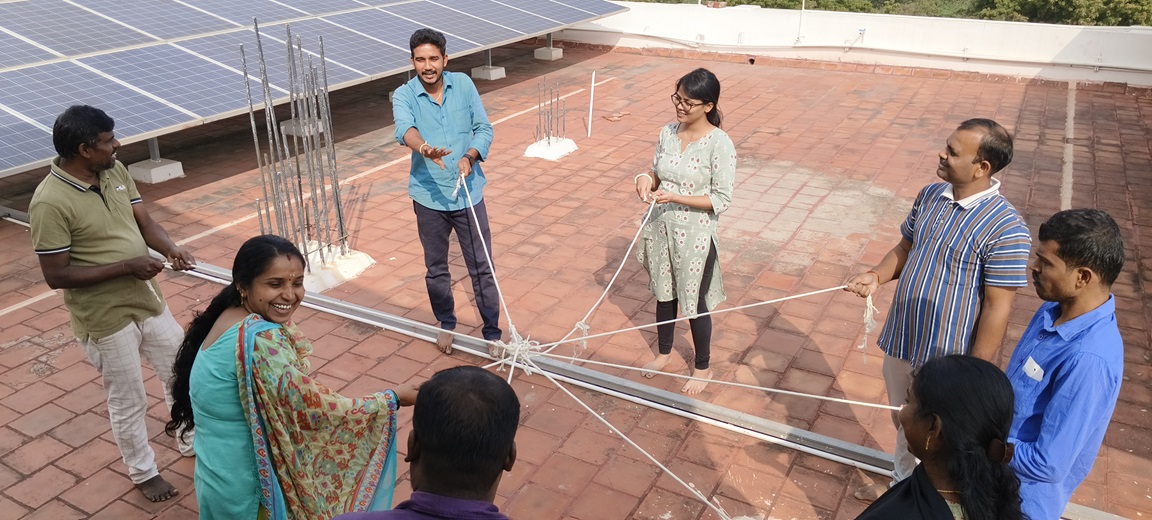
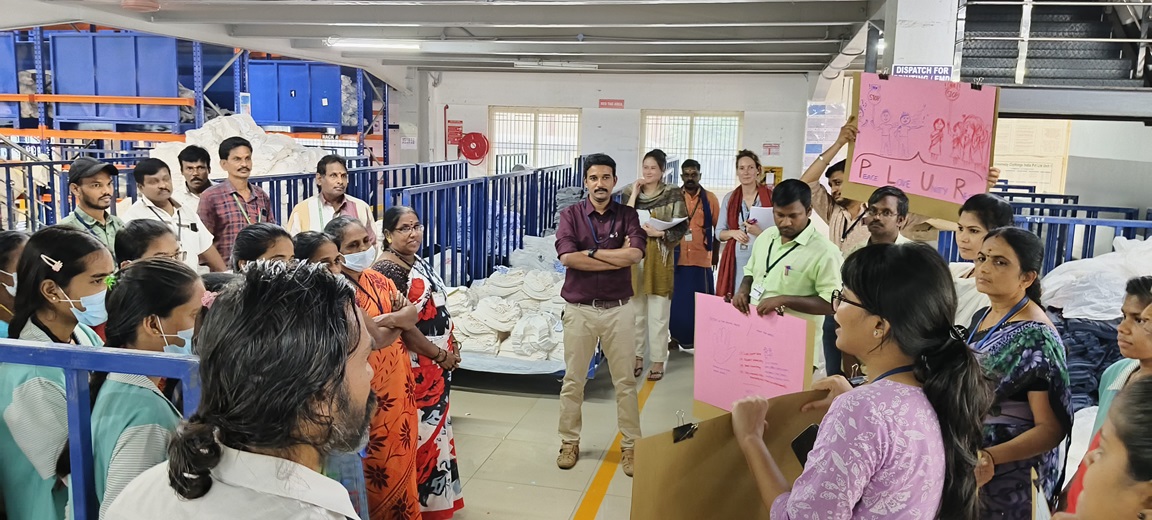
Optimizing Grievance Mechanisms
Through strengthening the capacity and effectiveness of the Works Committee (WC), Grievance Redressal Committee (GRC), and Internal Committee (IC).
Here's how we enhance these committees to better address grievances:
Works Committee (WC):
Training and Capacity Building: Provide comprehensive training to WC members on effective grievance handling techniques, conflict resolution skills, and relevant labor laws and regulations. Empowerment: Empower WC members to proactively identify and address issues related to workplace grievances, safety concerns, and employee welfare. Transparency and Accessibility: Ensure transparency in the WC's operations and make grievance procedures easily accessible to all employees. Clearly communicate the role and responsibilities of the WC to employees. Regular Meetings and Communication: Facilitate regular meetings of the WC to review grievances, discuss potential solutions, and track progress. Encourage open communication channels between WC members and employees.
Grievance Redressal Committee (GRC)
Composition and Diversity: Ensure that the GRC comprises representatives from different levels and departments within the organization, including management, HR, and frontline workers. Aim for diversity in terms of gender, ethnicity, and background to enhance impartiality. Prompt Response: Establish clear timelines for acknowledging and addressing grievances received by the GRC. Prioritize prompt resolution to prevent escalation and maintain employee trust. Confidentiality: Maintain confidentiality throughout the grievance handling process to protect the privacy and security of individuals involved. Respect the confidentiality of sensitive information shared during grievance proceedings. Documentation and Record-Keeping: Maintain comprehensive records of grievance cases, including details of complaints, investigations, decisions, and follow-up actions. Documenting cases helps track trends, identify recurring issues, and assess the effectiveness of grievance resolution strategies.
Internal Committee (IC)
Gender Sensitization and Diversity Training: Provide specialized training to IC members on handling complaints related to sexual harassment, gender discrimination, and other sensitive issues. Foster a culture of gender sensitivity and inclusivity within the workplace. Strict Adherence to Legal Requirements: Ensure compliance with legal requirements related to the prevention of sexual harassment in the workplace. Adhere to the guidelines outlined in the Sexual Harassment of Women at Workplace (Prevention, Prohibition, and Redressal) Act, 2013, and related regulations. Support for Victims: Offer support and assistance to employees who file complaints of sexual harassment or discrimination. Create a safe and supportive environment for victims to come forward with their grievances without fear of retaliation. Overall, continuous monitoring, feedback mechanisms, and periodic reviews are essential for evaluating the effectiveness of grievance redressal mechanisms in factories and making necessary improvements to ensure fair and timely resolution of employee grievances.
Third Party CAB with Fair Stone International
Paradigm Shift is now a Confirmatory Assessment Body (CAB) for Fair Stone in India, China and South East Asia. Fair Stone is the international Social Standard for natural stone imports from developing and emerging markets. Natural stone importers - the Fair Stone Partners - implement certain criteria within their supply chain and therefore actively improve the working conditions in stone processing factories and quarries.
The Fair Stone logo proves that the products are produced
in compliance with ILO-Core Labor Conventions (e.g. without child or bonded labour, etc.)
under observation of safety and health of the workers;
are traceable with the software Tracing Fair Stone
under consideration of environmental issues.
Meet our Founders
Nilambar Bhuinya
Director & Co-founder
Neel holds a Masters in Computer Science & Application and Masters in Social Work. He is IRCA and SAI certified auditor for several management system standards. He is a social dialogue, labour & supply chain expert, environment and social risk management consultant, facilitator, researcher, impact analyst and social compliance auditor. Neel has worked closely worked with factories, supply chains covering Readymade Garment, Plantations, Jute, Leather, Mining, Hard Goods, Light and Heavy Engineering. For the last 16 years he has been closely associated with international organizations, cooperatives, NGOs, Trade Unions, Rural Producer Groups, impact funding agencies and government organisations in Indian Sub-Continent, South East Asia, Gulf Region, and Africa. Neel is an expert on conflict management, migrant labour rights, social dialogue, forum theatre, modern day slavery and SROI (Social Return on Investment).
Jekib Ahmed
Director & Co-founder
Jekib Ahmed holds an engineering degree and has more than 18 years of experience of working with core production, industrial relations, and multi-stakeholders management across different sectors in India, Mauritius, Bangladesh, Nepal, China, Vietnam, Cambodia, Sri Lanka and Middle East on the issues of ethical supply chain. IRCA Lead Auditor for many management system standards; he is a seasoned professional who has hands on experience in handling social audits, monitoring and assessments, labour conflicts, factory level remediations, negotiations, financial inclusion and impact assessment. Jekib has intensively worked on the core issued related to Human Rights and sustainability with brands and international organizations in readymade garments, mining, sports goods, electrical, electronic leather, automobile, pharmaceuticals, carpet, furniture, metal handicraft, jewellery, and rural weaving supply chain.
Geographical Coverage


